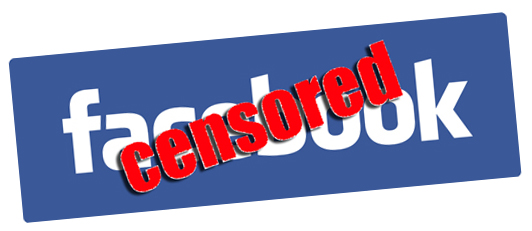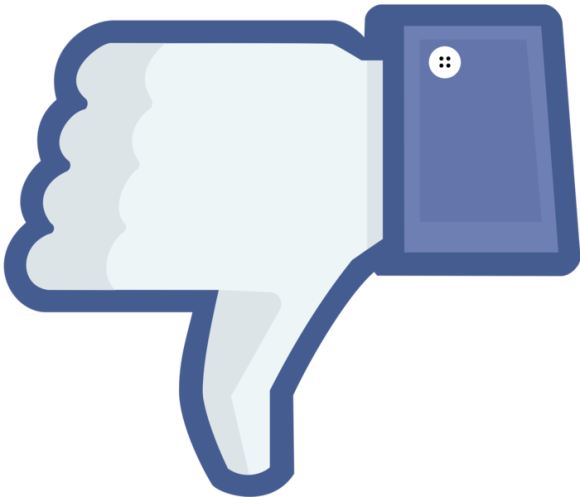PERIODICALLY, the spectre of Internet censorship is raised under the benign guise of “regulating” the internet.
In 2009, leaked documents revealed the government’s call for a tender involving the installation of Internet filters. The tender was later cancelled. A year later, the Malaysian Communications and Multimedia Commission (MCMC) engaged KPMG to research the “Study on Positive and Safe Use of the Internet”. It revived concerns that the government was once again looking to censor the Web. In 2011, MCA President Datuk Seri Dr Chua Soi Lek called for more effective control over online media content.
Social media, particularly Facebook, have not been spared the threat of censorship. In 2010, Umno supreme council member Datuk Seri Dr Shahidan Kassim said Facebook should be blocked as it posed a threat to national security. This year, Kinabatangan MP Datuk Bung Mokhtar Radin took the MCMC to task for “failing to control social media”. Recently, Tun Dr Mahathir Mohamad even said he regretted guaranteeing internet freedom when the Multimedia Super Corridor (MSC) was set up in 1996.
Which brings us to the MSC 10-point Bill of Guarantees (BoG), wherein the government’s promise to “ensure no censorship of the internet” is stated. With all the recent threats of censorship, just how watertight is this promise?

They have the tech
It is clear that the MCMC can instruct Internet Service Providers (ISPs) to prohibit access to certain websites or specific types of content, including specific YouTube videos. This capability has been documented online by the Sinar Project and was clearly observed during the recent general election.
If the government already has the technological ability to censor and disconnect Malaysian “digizens” from certain parts of the internet, what is there to stop them from blocking access to certain sites, like Facebook, entirely?
While Guarantee No. 7 in the BoG states that the government will ensure no censorship of the internet, the preamble of the BoG makes it clear that this guarantee is not legally enforceable. The simple reason is that it is not law in any form.
“The BoGs reflects the government’s intention to provide an environment in MSC Malaysia that is conducive to the development of MSC Malaysia Status entities. The incentives, rights and privileges granted pursuant to the BoGs are subject to requirements under relevant laws and regulations,” the preamble states.
In other words, if the government passes a law or regulation (which is a subordinate form of law) that states, directly or indirectly, that it can censor the internet, Guarantee No. 7 is no guarantee as it were. Since the guarantee is linked to the MSC, the government can arguably claim that it is only applicable to MSC-status companies and not individual citizens.
What about the Malaysian constitution? Article 10 guarantees Malaysian citizens the right to freedom of speech, but the constitution clearly states Parliament may, if it sees fit, restrict those rights in the interest of security, public order or morality.
Accordingly, our daily access to social media, from Twitter and Facebook to online news websites, exists because digital citizens have been allowed to continue accessing them. It is a privilege that has been granted by the government, and not a legal right in any manner or form.
 Would Facebook care?
Would Facebook care?
With 13.3 million users and counting, Malaysia ranks 8th in Asia in terms of Facebook usage. Malaysian censoring or blocking of Facebook, however, would likely be only of concern to the public-listed company if it meant a loss of revenue.
At present, Facebook does not report its revenues by country. Nor does it report how much the Malaysian government is spending on social media advertising. Given the heavy use of social media during the recent general election, it is unlikely to be an insubstantial amount.
It is entirely possible that revenues may not be significant enough for Facebook to be too concerned about what goes on in Malaysia, given that it needs to address more pressing concerns at hand, namely, the drop in usage among teens in its key market, the US. Indeed, the irony may well be that the biggest business Facebook stands to lose if the site is banned in Malaysia is ad spending dollars from the Malaysian government.
Yes, they can… ban Facebook
At the recently concluded Umno general assembly, party president Datuk Seri Najib Razak exhorted Umno members to master new media as the key to reaching new voters. Najib also recently celebrated securing two million ‘likes’ on Facebook. It’s not likely that the prime minister will be keen on banning Facebook when he himself is heavily reliant on it as a tool for political engagement.
Economics has also motivated the government to tread carefully. Initial tender documents issued for the aborted internet filter project showed that the government clearly recognised the negative implications on the economy and foreign investment. That said, countries like China and Singapore have shown that censoring the internet doesn’t necessarily scare foreign investors away.
 Ultimately, none of this means that the government won’t change its mind sometime in the future, especially with no legal restraints in place to challenge or resist such a law.
Ultimately, none of this means that the government won’t change its mind sometime in the future, especially with no legal restraints in place to challenge or resist such a law.
What can Malaysians do?
Dhillon Andrew Kannabhiran, chief executive officer of internet security firm Hack in the Box, said in an interview: “It’s a waste of time and taxpayers’ money. For every one way of blocking the Internet, there is another way of getting around it.”
The most obvious work-around to deep packet inspection is the use of a Virtual Private Network or VPN service, available for as little as RM0.69 per day, and which works on mobile devices as well as desktops and laptops.
But perhaps the ultimate bulwark to any attempt to ban or restrict access to Facebook, social media or the internet lies in the hands of Malaysian digital citizens themselves. To paraphrase the oft-quoted words of Thomas Jefferson, the price of digital liberty is eternal vigilance. ![]()
Bernice Low used to blog for CNET Asia but these days, she’s busy dreaming up Hollywood blockbuster movies in her other life as a screenwriter.


Sunna Sutta says
I sincerely doubt that the government will ever ban Facebook as it is a very important means of advertisement for businesses and also government propaganda. Also, much as the government knows that web-blogging via social media foments dissent against BN rule, it nevertheless realizes that the best means of defence is to respond through social media. Just look at the millions, if not hundreds of millions, that BN spent on advertising on Google, Facebook, etc. prior to GE13.
The government may, however, ban access to specific websites. In fact, according to Deputy Communications and Multimedia Minister Datuk Jailani Johari, MCMC blocked a total of 6,640 websites that contain pornography or malicious content or infringed copyrights between 2008 and 2013. As for Facebook, the government appears to be content with targeting individual users who abuse it, e.g. Alvin Teoh and Vivian Lee’s infamous bak kut teh Ramadhan greeting.
Still, it is quite possible that our government may copy India’s example of heavy-handed censorship of Google and Facebook. In fact, a top Indian court has recently ruled that Google and Facebook could be entirely blocked in the country unless they come up with a way to selectively censor or remove images and content that India’s government deems offensive. Incidentally, this happened after the Google India Transparency Report was released that stated,
“We received requests from state and local law enforcement agencies to remove YouTube videos that displayed protests against social leaders or used offensive language in reference to religious leaders. We declined the majority of these requests and only locally restricted videos that appeared to violate local laws prohibiting speech that could incite enmity between communities. In addition, we received a request from a local law enforcement agency to remove 236 communities and profiles from orkut that were critical of a local politician. We did not comply with this request…”
Donald says
They are already filtering all Streamyx users. We no longer get a “real world” IP.
Gopal Raj Kumar says
A Very happy New Year to all of you at the Nutgraph. Lets hope there is more public interest matters to debate in the coming year. And the hypothesis of whether government ‘can ban facebook’ is interesting. Without meaning to be facetious the question as posed by Bernice Low must elicit an emphatic “yes” in response.
Government meaning parliament in its majority can ban anything it wants to ban. Often such action would require legal justification.
A cursory read of the Constitution of Malaysia would inform Ms. Low and anyone else curious enough to want to know what the government’s powers are in this regard.
Facebook or social media (without the brand tag) are conveyances of speech or expression as the term is often referred to in legal parlance. It is no different to a newspaper, radio or TV station or a blog.
There is no state where those powers do not exist which will not be applied in circumstances they consider inappropriate. In most instances it is ‘national security’ or ‘public interest’ that is cited as the reason.
The language used in the First Amendment to the US Constitution restricts the right to free speech of not only citizens, but also and more importantly of government at the federal and states level if it were applied literally.
The reading and interpretation of Constitutions, especially of Constitutional Rights is often misinterpreted by many, including lawyers and journalists. Many seem to hold the view that an unfettered right to free speech exists in Malaysia, as it is also mistakenly believed to exist elsewhere.
Exceptions to free speech and guarantees under the constitution in the US under the First Amendment provides no protection for instance to obscenity, child pornography, or speech that constitutes “advocacy of the use of force or of law violation … where such advocacy is directed to inciting or producing imminent lawless action and is likely to incite or produce such action.”
Gopal Raj Kumar says
Also the programmes that are used to create sustain and drive facebook are no longer proprietary material. Many forms of social media exist (that are) less political at the board level than Facebook. Banning Facebook will not necessarily disrupt communications or correspondence between users of other forms of internet conveyance.
In order for Facebook to maintain its customer base it has to itself tread carefully and “kow tow” to those who have greater political and economic clout. […]
Sunna Sutta says
@Gopal Raj Kumar
There is no doubt that there are even greater restrictions on freedom of speech in Malaysia compared to the USA. Of course, it goes without saying that obscenity, child pornography, etc., or perhaps even speech deemed as seditious should be banned or removed from social media whether in Malaysia or the USA.
However, it has to be pointed out that Google, YouTube and Facebook do in fact monitor and remove such inappropriate material. Even local online news portals like The Malaysian Insider filter out inappropriate content or have a self-policing system whereby users alert the webadmin by “red-flagging” inappropriate comments. TNG has a different system whereby comments are edited by the editor/reviewer before they are published in accordance with its Comments Policy. Once comments are published, the social media provider may arguably be held responsible for inappropriate content that may not have been filtered out or had escaped the reviewer’s attention.
In the case of India (which I mentioned in an earlier comment), Google was warned that its orkut service may be shut down despite having conscientiously abided by its internal censorship policy with regard to materials that are obscene, incite inter-communal hatred/violence, etc. The action taken by the Indian government was the result of Google’s refusal to remove users’ content that was critical of government corruption, inefficiency, etc. So far, Malaysia has not followed the example of India but it cannot be ruled out that there is a possibility that our government may someday harden its position and suppress freedom of political expression in cyberspace.